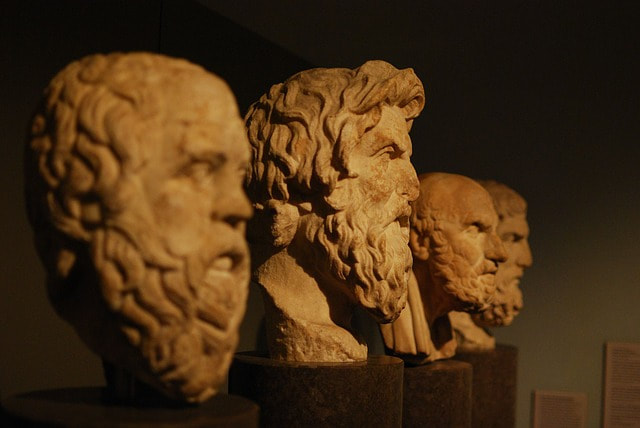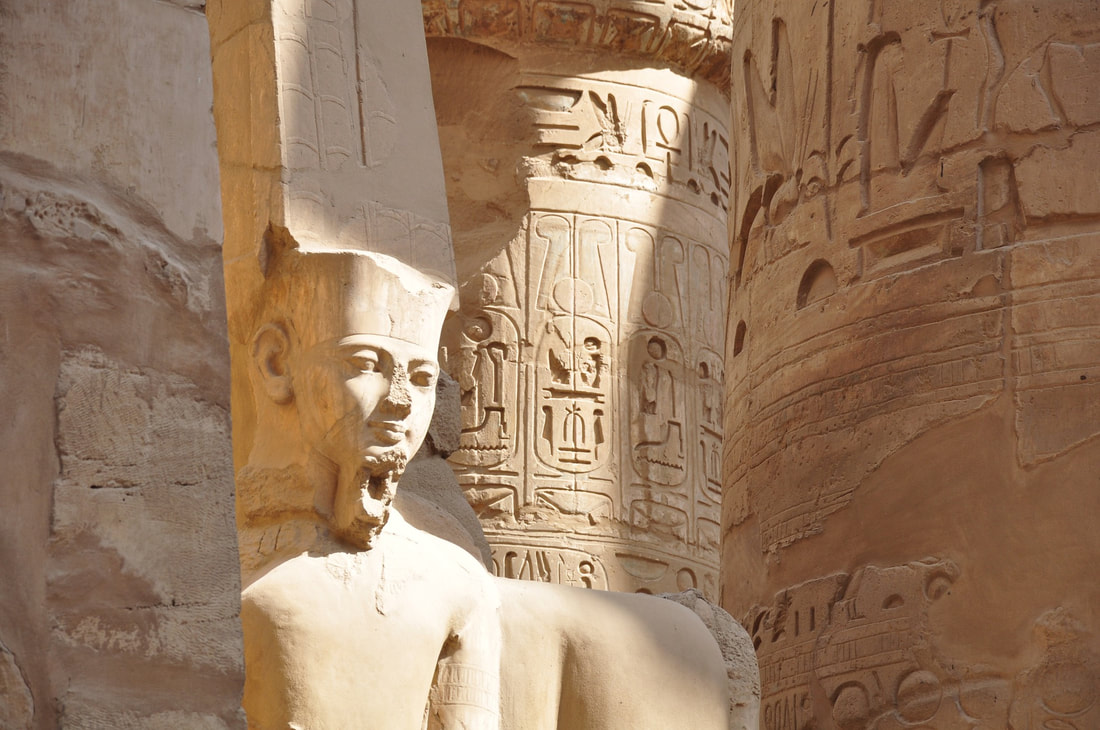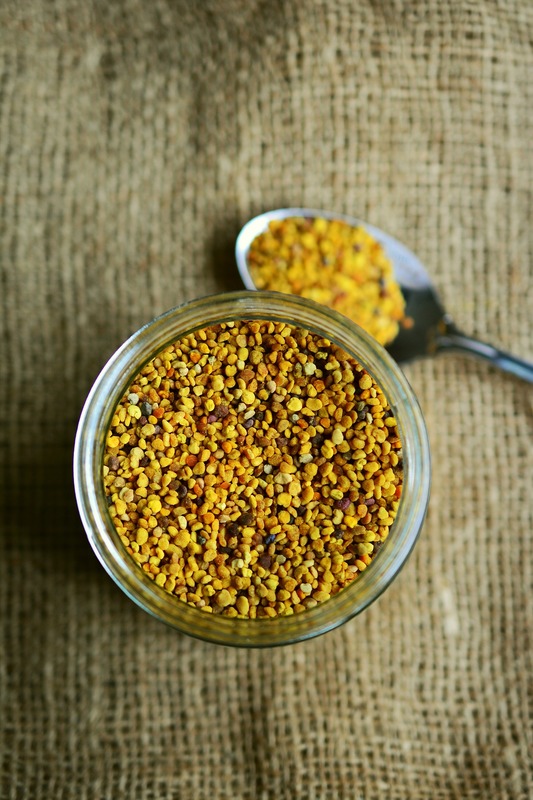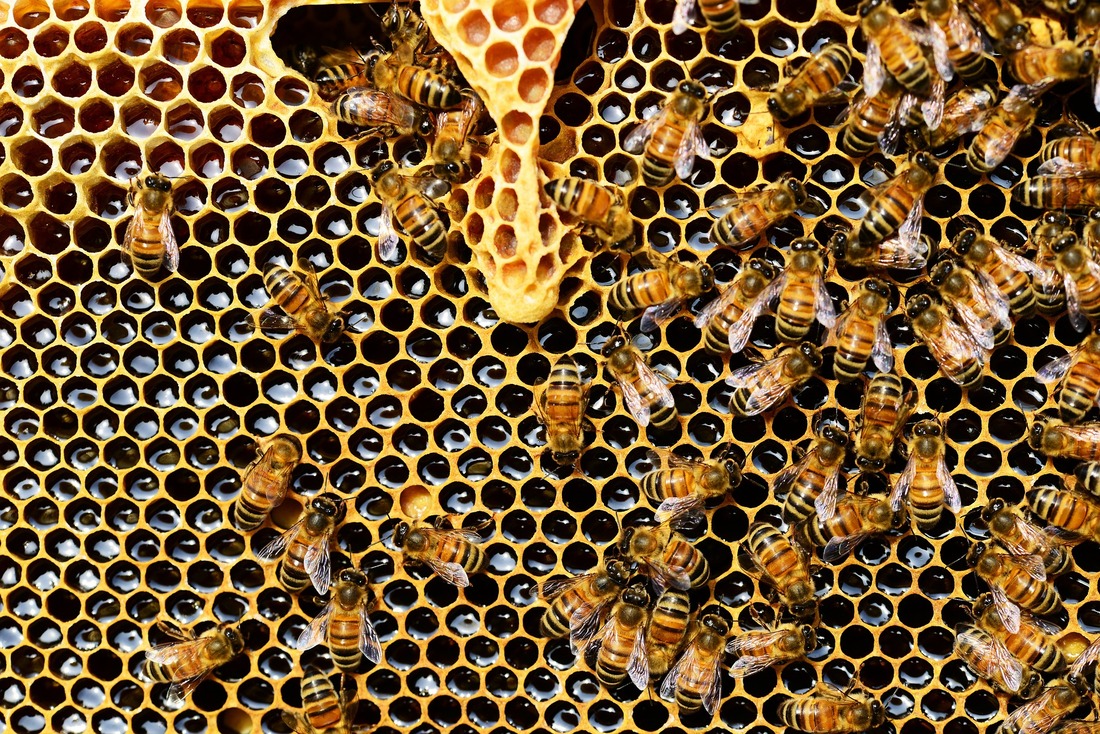A centuries-old medicine: Unani and the bees
Unani medicine looks back on a long history. To learn more about Unani medicine, its origins, and the role of bees and their products in its application, we spoke to Dr. Mohamad Adam. In his practice in Frankfurt, he practices osteopathy and apitherapy in addition to Unani.
BfP: Let’s get started with a small introduction about Unani Medicine and its history. Could you tell us more about that?
BfP: Let’s get started with a small introduction about Unani Medicine and its history. Could you tell us more about that?
|
MA: Unani medicine is an ancient medicine. Actually, I would call it the one medicine. In the past, people used to treat themselves with what they had around them and that is where it started. Unani medicine began to develop in Mesopotamia, in Babylon, and was later also adapted by the Pharaohs. It was then further developed by the old Greeks and Romans. There it was influenced by the teachings of Galen, Hippocrates, Empedocles, and Aristotle. The name Unani, which means “the Greek”, was given to it by the Arabs when they adopted it. Famous people like Avicenna, who is better known from the novel by Noah Gordon "The Physician" (in German, "Der Medicus"), and many others continued to work on it. Later it was also practiced by Hildegard von Bingen. But basically, until 100 or 200 years ago, everyone in the Eurasian region used Unani medicine, in the East and in the West. Unani is an ancient, classical medicine that developed over thousands of years. And it is the predecessor of our present-day conventional medicine.
|
|
BfP: Does Unani Medicine have any religious roots?
MA: Unani medicine does not actually have a specific religious perspective. However, it was and is mostly practiced by Muslims, especially in India, Pakistan, and Sri Lanka. But as I said, Galen, Hippocrates, the Pharaohs, Mesopotamia, Persians – there are many influences. That is also a nice example of how different religions can work and create together. For example, during the Muslim-Islamic heyday ca. 700-1700, many Christians, fire-worshippers, and Jews worked together on the Unani medicine in the House of Wisdom in Baghdad and developed it together. |
But when Muslims practice Unani medicine, they look at it with their own eyes. They might connect it with a hadith (a story about the Prophet Mohammed) or an ayah (sign) from the Qur’an. In Islam there is a lot that has to do with bees and their products. We do have a whole sura (Qur’anic chapter) called “The Bee”. It even explains the medicinal effects and how which kind of honey is used. And there are also many statements from the Prophet that a good person is like a bee, working hard and doing good. But the basics of Unani medicine are not religious.
BfP: Can you explain more about the foundations of Unani medicine and its treatment methods?
MA: Unani is based on the traditional four temperament teaching. There are four temperaments to which four humours are assigned. The choleric has the yellow bile, the sanguine the blood, the phlegmatic the phlegm, and the melancholic the black bile. Each temperament is different, has a different character, psyche, and behaviour. Accordingly, we use different therapies. For example, if a person with a hot temperament has an infection, I treat them differently than someone with a cold-dry temperament. Unani uses therapy but also prevention. This includes all kinds of things: medicines, nutrition, exercise, sleep, but also psychological therapies. Sometimes we just change something very small, but it ends up changing everything.
BfP: How do you find out what temperament a patient is?
MA: I have a questionnaire, which I as a doctor evaluate at the end. But this is often more complex than it sounds. I ask questions like: How fast does your hair or your fingernails grow? Do you have nightmares? But I also have to look at the patient and feel their pulse. I ask where and when they were born, where they come from, and where they live now. I also look at important events that have happened in their life and how they make decisions. So, it is more than someone coming in with a headache and prescribing them paracetamol or aspirin. You have to look very closely and find the cause of the disease.
MA: Unani is based on the traditional four temperament teaching. There are four temperaments to which four humours are assigned. The choleric has the yellow bile, the sanguine the blood, the phlegmatic the phlegm, and the melancholic the black bile. Each temperament is different, has a different character, psyche, and behaviour. Accordingly, we use different therapies. For example, if a person with a hot temperament has an infection, I treat them differently than someone with a cold-dry temperament. Unani uses therapy but also prevention. This includes all kinds of things: medicines, nutrition, exercise, sleep, but also psychological therapies. Sometimes we just change something very small, but it ends up changing everything.
BfP: How do you find out what temperament a patient is?
MA: I have a questionnaire, which I as a doctor evaluate at the end. But this is often more complex than it sounds. I ask questions like: How fast does your hair or your fingernails grow? Do you have nightmares? But I also have to look at the patient and feel their pulse. I ask where and when they were born, where they come from, and where they live now. I also look at important events that have happened in their life and how they make decisions. So, it is more than someone coming in with a headache and prescribing them paracetamol or aspirin. You have to look very closely and find the cause of the disease.
|
BfP: How did you become an Unani practitioner?
MA: Well, I was lucky enough to have slipped into it. I was in India and there you can study Unani there at the university. They even offer degrees on different levels: bachelor, master, PhD. And I took a couple of courses there and also read up on it a lot. Afterwards, I also studied at a university in Pakistan and in other countries. It has been nine years of studying and practicing Unani. In my practice in Frankfurt, I actually combine Unani with classical modern medicine, osteopathy, Ayurveda, traditional Chinese medicine and apitherapy. BfP: You are already touching up on a good topic. We at Bees for Peace are primarily concerned with bees. Are bees or their products important for Unani medicine? Ma: All bee products are used in Unani medicine. Not only honey, but also pollen collected by the bees, bee bread, royal jelly and propolis. And of course, the bee venom, the wax, even the hive air. Bees offer us so much. Many ointments, for example, contain wax. Honey and its ingredients are very potent and it is in many old herbal recipes. Honey actually varies according to variety, quality, and region. When prescribing honey, I have to look at what the problem is and then choose the appropriate honey. For example, dandelion honey is very good for liver bile. Thyme honey is very good for cold bronchial infections and asthma. Forest honey is good for strengthening and disinfecting wounds. And then there is the hive air, which can be inhaled. It is very successful with people who have asthma or respiratory diseases. It helps loosen the mucus. For example, there is a bee wagon, a kind of caravan with bees, and you sleep there and inhale the hive air. |
|
BfP: Do you keep bees yourself or are you active in bee protection?
MA: I used to keep bees until the year before last, before the Corona Pandemic. But I had to give them away because I simply don’t have the time. However, I am currently thinking about buying one of those wagons and to cooperate with local beekeepers. And I am also involved in nature conservation in other ways. We have a small bee pasture at home. And medicine is also a big issue. Many people don’t understand that it is also about you and yourself. If you tell them: We have to save the bees, they are not interested. But if you say: You will get sick if nature continues to be destroyed, then it suddenly becomes interesting to them. |




